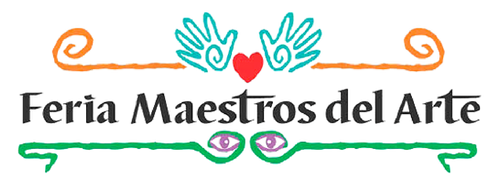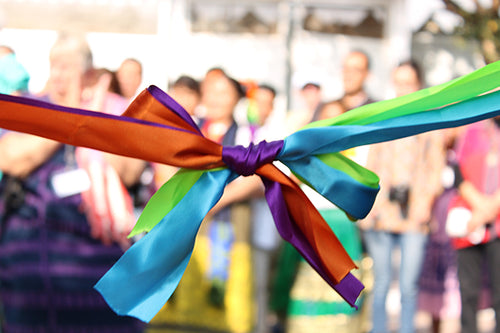
Colectivo Zipiajo, Zipiajo, Michoacán
El Colectivo Zipiajo está dirigido por su presidenta, María Elvia Silva Bartolo. Los artesanos residen en un pequeño pueblo , Zipiajo, en el estado de Michoacán. El Colectivo cuenta con 56 artesanos a tiempo completo y 8 trabajadores a tiempo parcial. Todos los trabajadores textiles son mujeres y la mayoría de los alfareros también son mujeres.
El colectivo (cooperativa) produce blusas y camisas de punto de cruz de gran calidad, así como cerámica primitiva, tanto utilitaria como decorativa. Estas tradiciones se remontan a muchas generaciones y siguen trabajando de la misma manera que lo hacían sus tatarabuelos. Elvia, la presidenta, entiende la importancia de seguir reclutando a artesanos más jóvenes y ha tenido éxito, especialmente con las mujeres. Dice que el trabajo de alfarería es duro y sucio, por lo que es difícil reclutar a la generación más joven. Sin embargo, se ha comprometido a tratar de encontrar formas adicionales de ganar dinero, de modo que sea más atractivo para los miembros más jóvenes de la pequeña comunidad elegir trabajar como artesanos.
Hace unos 30 años, Elvia prometió a 80 de sus mayores continuar con la técnica tradicional de cocer en la tierra y así, no utilizar hornos. Elaboran ollas sencillas, pero muy populares para cocinar, así como ollas decorativas en forma de venados, conejos, tortugas, armadillos, ardillas, etc. Su trabajo en barro es sencillo y hermoso, pero económico y accesible para todos los compradores.
Los diseños textiles suelen provenir de la naturaleza, como por ejemplo de flores silvestres. Las blusas y camisas están bordadas sobre muselina de algodón (manta), principalmente de color blanquecino, pero también en colores. La calidad del trabajo es exquisita y las camisas de hombre son muy bonitas.
Para la cerámica, los miembros del colectivo encuentran la arcilla en la tierra de un rancho local y utilizan arena que también encuentran cerca. Utilizan madera para cocer la arcilla, pero debido a la deforestación, han vuelto a una antigua tradición de utilizar estiércol de vaca que, como explicó Elvia, proporciona muchas “sorpresas” en color y textura en el producto terminado. Cocen sus piezas en la tierra.
El Colectivo Zipiajo es único por su capacidad de permanecer unido en su propósito y trabajar en cooperación a lo largo de los años. Aunque cada artesano trabaja en su propia casa, se reúnen dos veces al mes para asegurar el progreso y discutir los problemas. También es extraordinario y único que colectivamente han decidido que cada vez que uno de sus miembros gane un premio, el dinero se comparte: el 50% del premio va al artesano que hizo la pieza y el otro 50% va a toda la cooperativa. También tienen una tienda para vender sus artículos en Zipiajo. Una vez más, las ganancias se comparten. Tienen una excelente reputación con las entidades gubernamentales debido a su capacidad de trabajar en armonía.
El trabajo de la cooperativa ha ganado premios nacionales, regionales y locales. En Michoacán, en las fiestas de Semana Santa y Día de Muertos, su trabajo se vende rápidamente. La Feria se siente honrada y emocionada de invitar a esta pequeña comunidad a compartir su hermoso trabajo tradicional.
Presidenta: María Silvia Bartolo
Escala de las Moras 32
Barrio de San Sebastián
Zipiajo, Michoacán
454 596 0615, 443 468 3894 celular, 443 468 3894 celular

